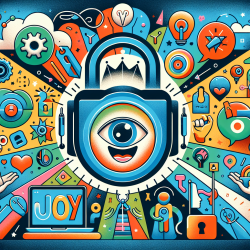Empathy: The Bridge to Better Health Outcomes for All
In the ever-evolving landscape of health care, one constant remains: the need for empathy. A recent study titled Cross Cultural Empathetic Behavior in Health Care Providers: A Review of 3 Countries sheds light on the profound impact empathy can have in diverse cultural settings. This research explores how empathy, when integrated into health care practices, can combat ethnic bias and discrimination, ultimately leading to improved health outcomes.
The Power of Empathy in Health Care
Empathy, the ability to understand and share the feelings of another, is a cornerstone of effective health care. It allows providers to connect with patients on a human level, fostering trust and open communication. According to the World Health Organization, empathy is essential for achieving the right to health for all people, ensuring access to necessary health services without financial hardship.
The study examines empathetic behavior in three culturally distinct countries: the United States, Hungary, and Ethiopia. Each country presents unique challenges and opportunities for integrating empathy into health care practices. The findings suggest that empathy can transcend cultural boundaries and serve as a universal tool for improving health care delivery.
Empathy Across Cultures: Lessons from Three Countries
- United States: As a highly individualistic society, the U.S. faces challenges in addressing health disparities among its diverse population. Empathy is linked to cultural humility and competency, essential for providing equitable care in multicultural settings.
- Hungary: With a moderately individualistic culture, Hungary struggles with ethnocentrism and bias, particularly against the Roma people. Empathy can play a crucial role in overcoming these barriers and fostering inclusive health care practices.
- Ethiopia: As a collectivist society, Ethiopia grapples with ethnic conflict and resource disparities. Empathy can bridge these gaps, promoting equitable health care access for all ethnic groups.
Implementing Empathy in Health Care Practices
For health care providers, incorporating empathy into daily practice is not just a moral imperative but a practical necessity. Training programs that emphasize empathetic behavior can equip providers with the skills needed to address patient misperceptions and increase access to care. These programs should be culturally sensitive and adaptable to the unique needs of diverse populations.
Practitioners are encouraged to explore further research on empathy's role in health care. By understanding the cultural nuances and barriers to empathetic care, providers can develop strategies to enhance patient-centered care. This approach not only improves health outcomes but also fosters a more inclusive and equitable health care system.
To read the original research paper, please follow this link: Cross Cultural Empathetic Behavior in Health Care Providers: A Review of 3 Countries.










